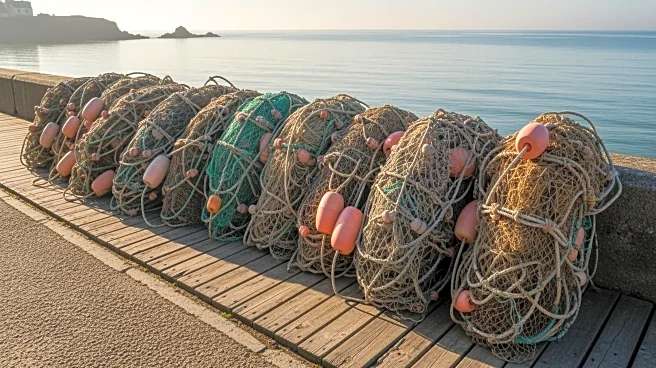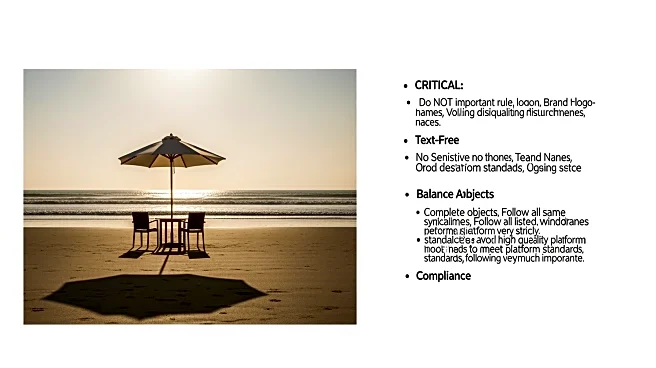What's Happening?
The Jersey fishing industry is experiencing difficulties in exporting seafood to France due to new regulations concerning the use of ice made from Jersey tap water. Nathalie Porritt, manager of Aqua-mar
fisheries, reported that the paperwork required for using local tap water to make ice has become burdensome, leading to the destruction of some scallop shipments that failed to meet temperature requirements. Environment Minister Steve Luce highlighted the increasing difficulty in meeting French import requirements for shellfish. The French authorities have stipulated that the water used to make ice must be from an approved source, complicating the export process. Despite these claims, St Malo's border control refuted the allegations, stating that no ice water analysis was requested and no scallops were refused or destroyed.
Why It's Important?
The stringent regulations imposed by French authorities on seafood imports from Jersey have significant implications for the local fishing industry. These requirements could lead to increased operational costs and logistical challenges for Jersey seafood exporters, potentially affecting their profitability and market access. The need for compliance with these regulations may also impact the frequency and volume of exports, as seen in the reduction of ferry trips from four times a week in summer to once a week in winter. This situation underscores the broader challenges faced by small-scale fisheries in navigating international trade regulations, which can have ripple effects on local economies and food security.
What's Next?
Jersey's fishing industry may need to explore alternative methods to comply with French regulations, such as sourcing approved water for ice production or adopting new packaging techniques. The ongoing dialogue between Jersey's environment authority and French border control could lead to adjustments in the regulatory framework, potentially easing the export process. Stakeholders, including local government and industry representatives, may engage in discussions to find solutions that balance compliance with economic viability. Monitoring developments in this area will be crucial for the fishing community to adapt and sustain their operations.
Beyond the Headlines
The situation highlights the complexities of international trade regulations and their impact on local industries. It raises questions about the balance between food safety standards and the practicalities of small-scale production. The case also illustrates the potential for regulatory discrepancies to create tension between neighboring regions, emphasizing the need for clear communication and cooperation in cross-border trade.









